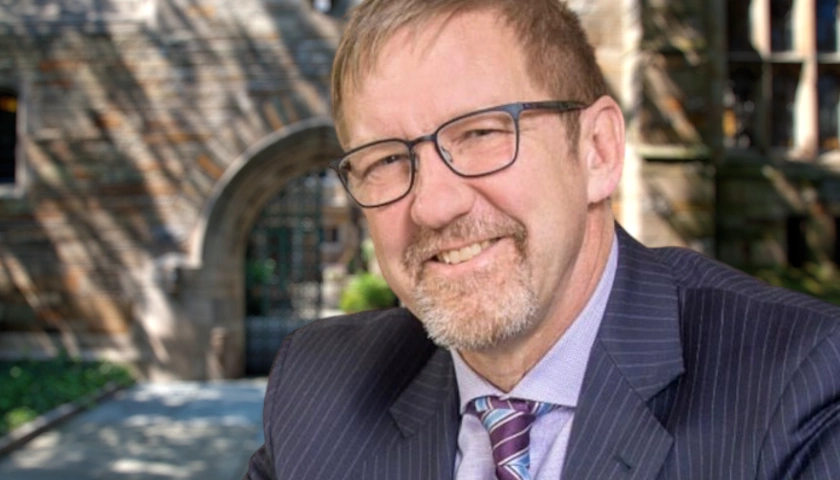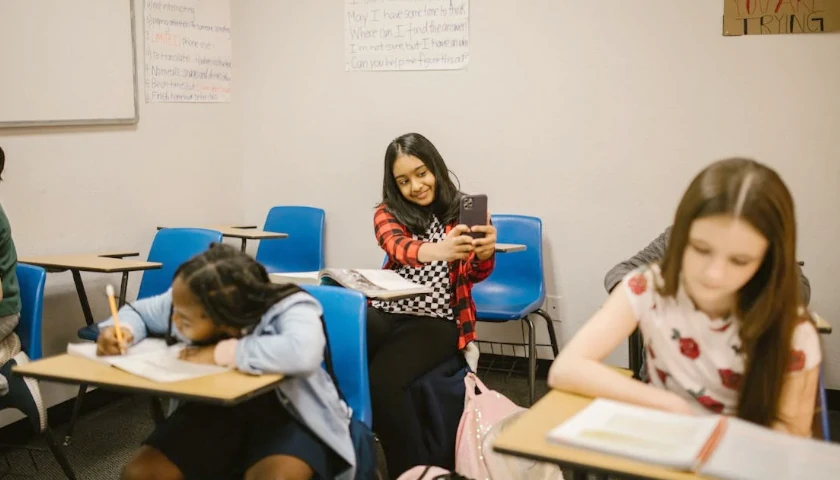by Daniel Nuccio
“These universities are so arrogant and so disrespectful of their taxpayers’ wishes and, quite frankly, their money, that it’s infuriating.”
So says Michael Thad Allen, once a tenured history professor who found a second career as a lawyer defending college students and faculty against “hallucinatory” accusations from what he calls “Campus Cloudcuckooland.”
No matter how preposterous the actions of academic institutions become, most people don’t want to go through “the emotional punishment of standing up to these ridiculous, clearly out of control universities,” he said. But there’s been enough plaintiffs to keep him quite busy in recent years.
“Back in 2007 there weren’t insane activist HR departments. There was no diversity, equity, and inclusion office. … I had not even heard of Title IX as a professor except as it applies to women’s sports,” Allen told The College Fix in a recent interview.
Since then, some of Allen’s clients have included: a professor being reported after he was overheard asking a Filipino student if he spoke Spanish or Tagalog; a professor investigated for displaying a poster in his office signed by a famous director after someone claimed its presence constituted sexual harassment; and a professor accused of unprofessional conduct because she had her mother in her office to help write a grant.
“These investigations are just harassing professors for the sake of investigation,” Allen said. “It’s like a full employment program for these HR numbskulls and DEI bureaucrats.”
It was in the mid-2000s as a historian at the Georgia Institute of Technology that he started contemplating the career change.
He was enjoying some success as a scholar at the time — his scholarship was getting noticed and he had received some praise for his book, “The Business of Genocide,” which detailed the use of slave labor in Nazi concentration camps.
But Allen said his department was in a state of collapse following a period of infighting, and family reasons required he maintain a residence in New England in addition to his place in Atlanta – something he noted is quite difficult to do on the salary of a humanities professor.
Subsequently, Allen said, after “taking interviews at some really depressing institutions” while searching for a new faculty position in New England, he opted to apply to law schools and graduated from Yale Law in 2010.
Some of Allen’s more notable clients include former English Professor Zack De Piero, who is currently suing Pennsylvania State University, Abington, over alleged civil rights violations involving the content of mandatory DEI training materials.
Another client is University of North Texas music Professor Timothy Jackson, who Allen described as having had “the extremely bad timing to argue … in July of 2020 that the entire tradition of Western classical music should not be considered systemically racist.”
In 2021, Allen also successfully defended a University of Connecticut student wrongfully railroaded by sexual assault accusations.
His path to his second calling, though, Allen admitted, is “maybe less glamorous than you might think.” Specializing in cases against universities, Allen noted, was not the initial plan.
After graduating from Yale, Allen eventually found his way to a prominent firm in Hartford, Connecticut in 2015. There he said he defended academic institutions against claims they were liable for the actions of employees who may have been guilty of sexual abuse.
Although Allen does not deny there were real victims of actual crimes in some of these cases, he noted it can be a stretch to claim the academic institution of a perpetrator is responsible, especially if the institution was unaware the abuse was going on or responded appropriately once it came to their attention.
A couple years later, Allen said, he moved on to a smaller firm where he did a lot of Title IX work, often drawing on his background in higher ed and knowledge of how academic institutions operate on the inside, while learning how to run a law firm as a business and to “attack universities for some of their excesses.”
Not long thereafter, in 2018, Allen started his own firm which would later merge with that of his now-partner Samantha Harris. At present, Allen said, a third of their business remains Title IX work.
“It is most often the case that the accused students come to us seeking legal representation and assistance with…the administrative proceedings in these campus kangaroo courts,” he said.
He and his firm will also sue universities to recover damages for clients and expunge their records, as well as “represent clients on the victim side,” he said.
Another large chunk is First Amendment work, often related to academic freedom.
“Obviously, at private universities there is no right to free speech,” he said. “Nevertheless, many private universities extend guarantees of academic freedom and free speech through their policies and in many states those are enforceable as contracts.”
The specific types of cases Allen and his firm have seen in this category, however, do change with the “cause majeure” of the moment, Allen said.
“When I first started, the free speech cases were having to do with the Me Too movement,” he said. “So, if you were accused and you suggested women don’t necessarily tell the truth…sometimes a campus mob would start.”
“With the murder of George Floyd in the summer of 2020…there was a whole new wave of free speech cases including accusations of racism,” he said, adding he would describe some as purely “hallucinatory.”
Although it did not involve one of his firm’s clients, Allen said, the controversy at Yale Law School in which a half-Cherokee student was accused of racism for suggesting he would serve fried chicken at a party is a prime example of a hallucinatory accusation of racism.
There was also “a whole fad for ‘n-word’ cases,” he said. “Someone somewhere would say the ‘n-word’, usually a white student.” However, Allen noted, in the cases he’s seen, the students “weren’t… trying to direct an insult at African Americans” but instead were doing something like “singing rap songs.”
“Now of course, the Israeli-Gaza thing is a new issue that produces First Amendment cases,” he said.
Another 15 percent of the cases handled by his firm pertain to academic misconduct, and the remainder of his firm’s work Allen described as something of a catch-all, which he noted includes an emerging category of cases he calls “investigations for the sake of investigations.”
– – –
College Fix contributor Daniel Nuccio holds master’s degrees in both psychology and biology. He is currently pursuing his doctorate in biology at Northern Illinois University where he is studying the impact of social isolation on host-microbe interactions and learning new coding techniques to integrate into his research.
Photo “Michael Thad Allen” by Michael Thad Allen.





